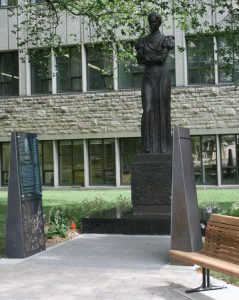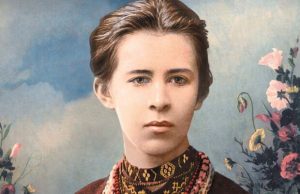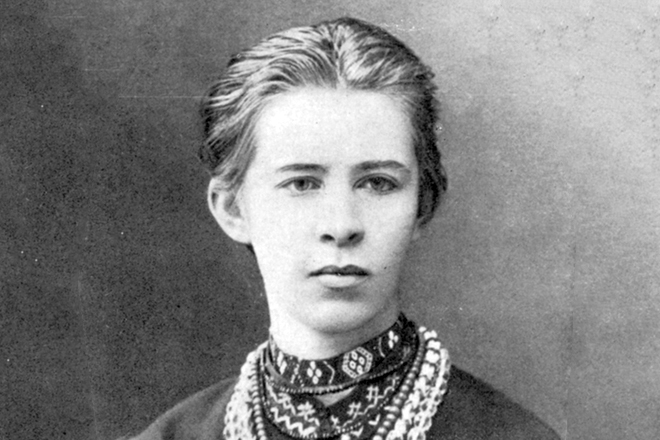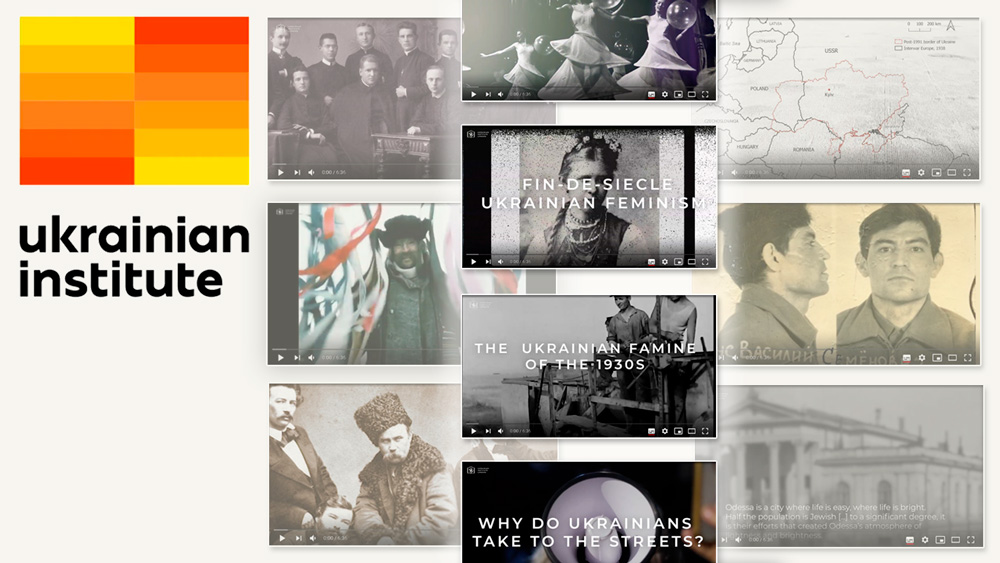On the 150th anniversary of her birth (February 25, 1871), the last seven years of which have been spent fighting a war against Russian invasion and aggression, Lesia Ukrainka’s poetry translates the patriotic, albeit sorrowful, words of all Ukrainian soldiers when she writes:
“Our death
Will teach others how they ought to live.”
If reading Taras Shevchenko, the iconic Ukrainian serf-turned-national poet of the XIX century, is like striking a match in a dark room filled with explosives, as the life-changing effect of his poetry has been described, then reading Lesia Ukrainka is like finding a precious pearl, hiding it for safety, and then selling everything in order to purchase it. My former Slavic Studies professor, Dr. Victor Bunyiak, did just that when he bequeathed nearly $200,000 towards a monument to Lesia Ukrainka and research at the University of Saskatchewan, Canada.
That monument was first delivered to the university in the early 1970s because Dr. Robert Begg, the university president, took an interest in the poetry of Lesia Ukrainka. And, since it came from the Soviet Union, there were concerns that the project would become a “trojan horse” intent on forcing Lesia Ukrainka’s legacy into a communist and atheist “pan-Russian revolutionary-democratic” ideology.

Taras Shevchenko writes that the kozaks of the Zaporizhzhian Host at the time of Ivan Mazepa in the early 1800s developed a devotion and obedience to the Irzhakivska Mother of God. In the 20th century, the Ukrainian Insurgent Army (UPA) was created on the Feast of Patronage of the Mother of God. Ukrainian poets of the World War II era wrote that no matter how quickly events changed, and the years went by, they kept faith with Lesia Ukrainka’s Contra Spem Spero (Against all Hope I Hope).
In her iconic poem Against all Hope I Hope, Lesia speaks of “laughter through tears”
and “singing in the midst of misfortune”. The laughter she has in mind is not irrational or vulnerable, but rather a strong defence against violence and pain. It is a catharsis that moves one to action, similar in defiance to Shevchenko’s “I am punished, I suffer, but I am not repentant”.
Yes, I will laugh despite my tears,
I'll sing out songs amidst my misfortunes;
I'll have hope despite all odds,
I will live! Away, you sorrowful thoughts!
Lesia’s “laughter through tears” is likewise more universal and relevant to the Ukrainian experience than what is sometimes referred to as the source of that phrase, a quote from Mykola Hohol’s Dead Souls about his solitary life as a writer in which he is fated “to survey (life) through the laughter that all can see and through the tears unseen and unknown by anyone”.
In her poetry, Lesia emotionally acknowledges the physical limitations due to her chronic ill health, but she does not lose her fighting spirit:
“My only weapon is the word,
But there’s no reason both of us should die!
Perhaps in the hands of some unknown brothers
My word will become an even better sword
Against those who condemn us to death.”

2021 is also the seventh year of the war in Ukraine. The following poems by Lesia Ukrainka are a powerful tribute to “the defenders of Ukraine against Russian aggression”, as Ukrainian writer and photojournalist Vitaliy Zapeka describes the war. The first is found in The Apocryphal of Lesia Ukrainka: Four Conversations About Lesia Ukrainka
by Oksana Zabuzhko and Patriarch of the Ukrainian Greek Catholic Church Sviatoslav Shevchuk.
The collection contains a poem about Simon of Cyrene, whom the Roman soldiers order to carry Jesus’ cross. In an interview for zhyve.tv, the poem is explained in this manner: Lesia Ukrainka transforms Simon, historically a simple farmer, into a carpenter. Patriarch Sviatoslav explains this change as a message to the socialists and communists rising to political and cultural power in Lesia’s era, the Ukrainians who had Taras Shevchenko’s Kobzar in one pocket, and Karl Marx’s Communist Manifesto in the other. He argues that the real internationalist workers, the proletariat, seek the universal in God’s love for humanity.
“Imagine the implication: the year is 1903, when the entire Russian Empire is heading for revolution. Lesia Ukrainka is saying that the true worker does not take upon his back the hammer and sickle, but rather the cross, and it is from the cross that one gains strength.”
Simon of Cyrene, From Where Will Come Our Strength? with its theme of resilience in the face of enduring hardships could be applied to the determination of the Ukrainian soldier who fights for his Homeland and saves his wounded brothers-in-arms in their time of need.
From Where Will Come Our Strength?
An Apocryphal
(excerpt)
“You, there!” cry the praetorian guards
“Get up at once!”
“Did you fall asleep?”
Their whips unfurl through the air like serpents
Red streaks emerge as stains
Seeping through his clothes
“I cannot…”
The unfortunate man manages a belaboured reply
“The cross is too heavy for me.
I have no more strength.”
He then collapses face first into the dusty road
The praetorian guard raises his whip,
But halts mid-swing when
Someone unexpectedly grabs
His arm
“Wait!”
“And who are you?” shouts the soldier
“How dare you?”
“I am the carpenter.
This cross is so heavy
Because of me
That is why I must carry it now
Let me take it!
I won’t charge any money for this work.”
No one stops him
He reaches for the cross
The hunch in his carpenter’s back
Now distinctly straightens
His taut and leathered hands engage the task,
His eyes ignite once more
With a gaze that had only just recently
Grown dim.
The worker directs the cross
Towards Golgotha
With the vigorous fire of a deep
And profound grief,
Step by step,
Resolute,
Determined.
Everything he has ever known
Of labour
Or exhaustion
Pales in comparison
To this task.

The second poem Flowers, and more flowers is a reminder to everyone who grieves over the grave of a Ukrainian soldier.
Flowers, and more flowers, there can never be too many flowers…
(excerpt)
My misfortunate friend,
I have brought you every solitary flower that has grown
Throughout that unbountiful spring
In this relentless land.
I have collected them all
And have placed them for you
Inside your coffin,
As if burying this pitiful spring
In its entirety.
I have heard enough of that Prelude
So much so that my blood has grown cold,
Stone cold.
Even now I am lost for words,
I cannot explain what the song of death
Has taught me.
Sorry, my dear friend, sorry,
Rest peacefully. Sleep!
I won’t tell a soul.
You can trust me to keep
These secret words
A secret.
If it is flowers that you want
I shall be more generous
Than that springtime of animosity,
That violent spring
When you were snatched away.
These flowers will never wither
And shall not be buried in the earth,
They will never die.
And you will live once more,
In a living laurel,
A wreath of live flowers.
As for the cotton veil of illusion,
The veil of my dreams,
It will not conceal you,
But rather will accent
Your beauty.
You will shine as a ray of light
Like the sun through a gentle mist
That blankets a golden field.
So what if the years pass by
One following another
Or if my own life washes away
Like water.
You will live within
The beauty of flowers
And I will live within
The tears
Of a melody.
-----
Translations by Jeffrey Stephaniuk





